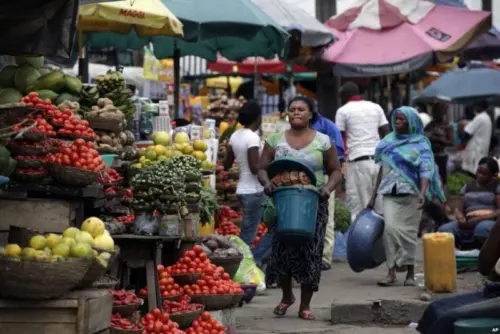
Traders across various markets in Benin City, the capital of Edo State, have expressed concerns over the activities of market unions, which they believe are a significant factor driving up the prices of goods.
Inflation in Nigeria reached a record high of 33.95% in May 2024, with food costs particularly affected by insecurity in northern states, limiting farming activities. In Benin, however, traders point to union activities as an additional source of the high prices.
According to Mrs. Juliet Chukwuemeka, a cosmetics trader in New Benin Market, union-imposed fees and regulations increase traders’ costs, forcing them to raise prices. She called on the Edo State Government to establish a regulatory body to address these issues and ensure fair pricing.
Tomato sellers have highlighted the Oghomwen Union’s influence, stating that non-members are prohibited from selling during daytime hours, effectively limiting competition and contributing to inflated prices. These sellers are forced to operate during off-peak hours to avoid union penalties.
This isn’t the first time traders have spoken out. In May 2024, the Traders’ Welfare Union of Nigeria staged a protest at the Nigeria Union of Journalists (NUJ) office in Edo State, condemning market unions for alleged exploitation, forced membership, and restrictions that create artificial scarcity and drive up food prices.
Union officials, however, have defended their roles. Mrs. Elizabeth Christopher, known as “Mama Caro,” a leader of the fish sellers’ Amenze Social Club at Oba Market, explained that the union protects members from harassment and ensures order. Membership fees and levies, she claimed, are necessary to maintain these protections. She attributed rising fish prices to artificial scarcity created by suppliers hoarding stock, rather than union activities.
Other unions, such as the Osagioduwa union overseeing tomato sales and the Ebhaunegbe union for meat sellers, have similar membership requirements, including mentorship and fees. They also foster community support, offering financial aid to members in times of need.
Union representatives deny their actions contribute to price increases, instead pointing to broader economic challenges and the need for traders to turn a profit. “We are in business to make a living, not losses,” a union secretary remarked, emphasizing the importance of mutual support among traders.
Despite the unions’ defense, many traders insist that union fees, restrictions, and practices exacerbate the already high cost of living for consumers and traders alike.


